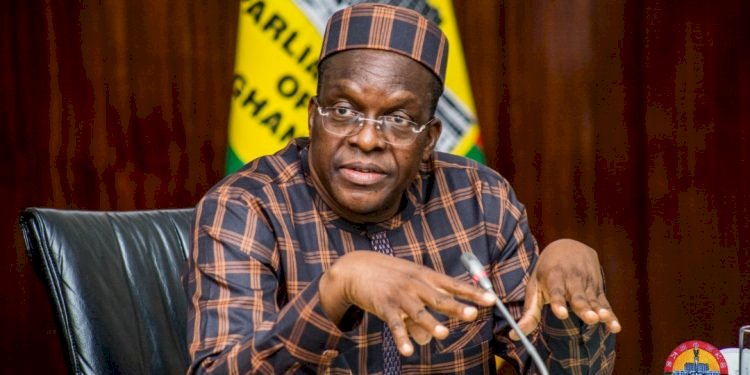NPP Doesn’t Have The Power To Remove Adwoa Safo from Parliament - Bagbin

The Speaker of Parliament, Alban Bagbin, says the governing New Patriotic Party (NPP) cannot remove the Dome-Kwabenya legislator, Sarah Adwoa Safo from parliament on their own authority without recourse to parliament. Speaking at an Editors’ forum, he said political parties do not have the power to remove their representatives in parliament. According to Mr. Bagbin, parliament has its own internal processes for the removal of a legislator and the basis for such actions is clearly stated in the constitution. When I hear my colleagues in the NPP say that they have removed Adwoa Safo, I ask, do you have that power? You can use your party to take her off as a member of your party and that can trigger some constitutional consequences, but you cannot just go and sit down and say you have removed her because it is only the Speaker that can declare the seat vacant, he said. The Dome-Kwabenya MP has been the subject of criticisms from some of her colleagues for absenting herself from Parliament since the current Parliament started sitting. They accuse her of holding the Majority Caucus to ransom, considering the numbers needed to pass the controversial E-levy bill. Adwoa Safo has been accused of requesting to be made the Deputy Majority Leader in Parliament, a position she held in the previous Parliament, and had decided to stay away from Parliament because her demand had been turned down. Some leaders of the NPP have called for Adwoa Safo’s removal from parliament, but according to Alban Bagbin, the embattled legislator may be expelled from her political party but the power to remove her from parliament does not rest with them. Per Article 97 (1) (c) of the 1992 Constitution, Members of Parliament who stay away from parliamentary sitting 15 times or more within a meeting without the written permission of the Speaker must be made to vacate their seats. According to Bagbin, Adwoa Safo or any other member who is found to have violated the constitution in that regard is to be made to face the Privileges Committee where he or she will be made to give reasons for their long absence and without a reasonable excuse, the committee will recommend their removal. Our constitution did not talk about it being consecutive, but I have been getting reports from Civil society calculating it on a session and just adding your days of absence and saying that you should have vacated your seat. But when I read a lot of cases in other jurisdictions they said consecutive, fifteen consecutive sitting days in a meeting, that is the circumstances under which the Speaker will be called upon to refer the matter to the Privileges Committee who will invite the member to come and explain why the absence without the permission from the speaker. If a reason is given that is reasonable, then the person would not have to vacate his or her seat. It is when the committee decides that the reason is not reasonable then they will report to the House, the House will debate it and the decision will be taken, he explained.







